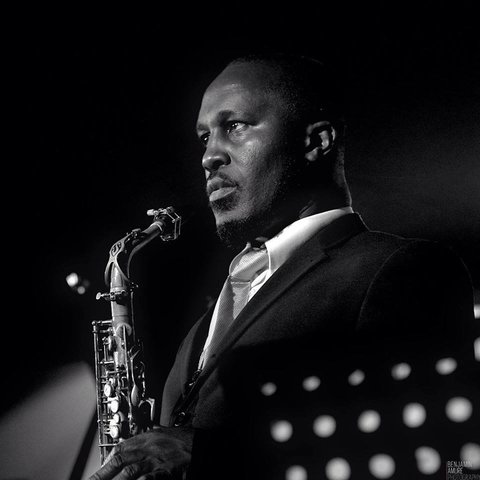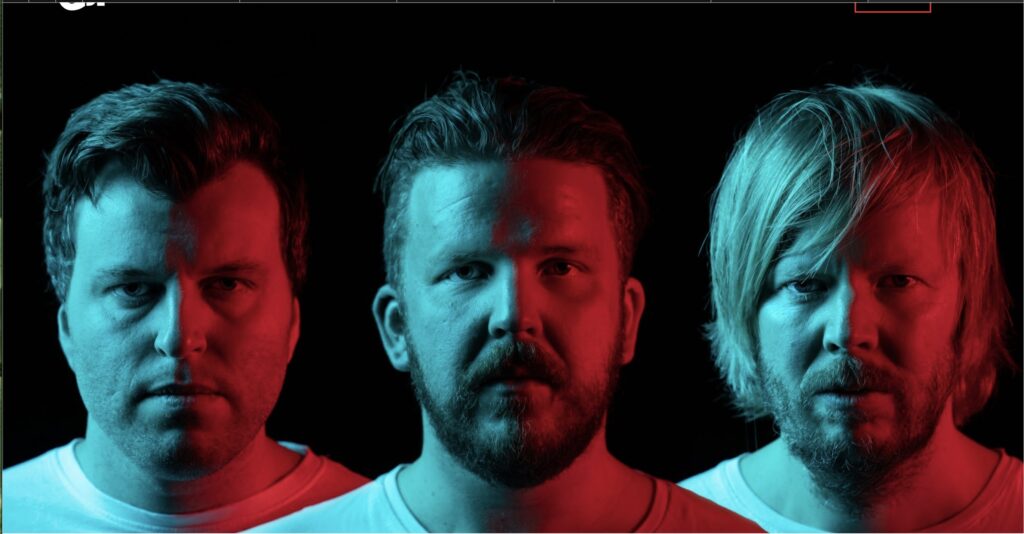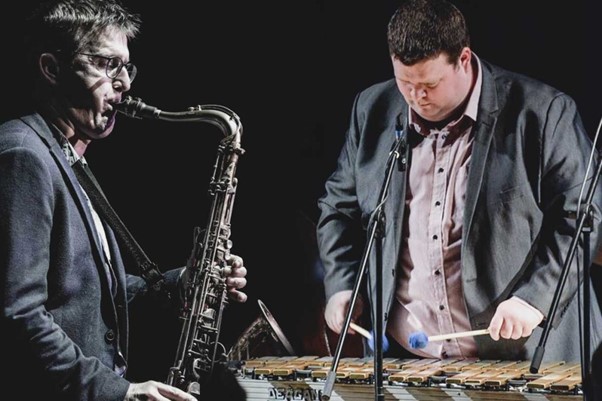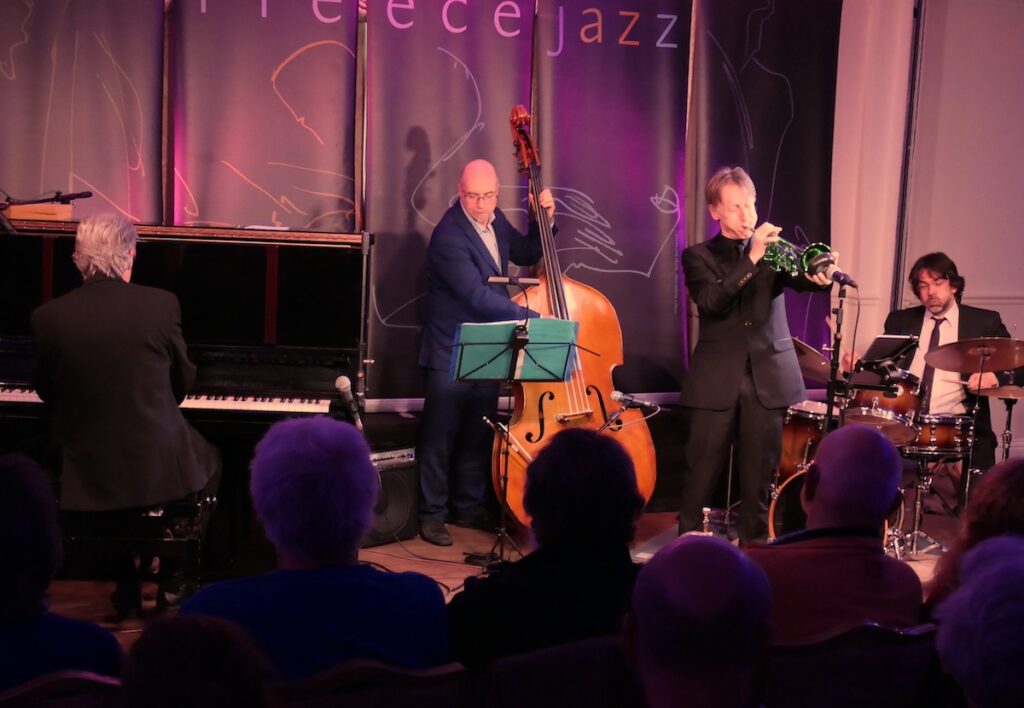Tony Kofi Baritone sax
Liam Dunachie Hammond organ
Simon Fernsby Guitar
Pete Cater Drums

‘Kofi deals not so much with the past as with the eternal truths of jazz music – swing, in-the-moment lyricism, the lust for life – and he continues to find compelling ways to express them.’ (All About Jazz)
Award-winning and internationally recognized saxophonist Tony Kofi teams up with the ‘Organisation’ to perform a hard-hitting selection of tunes in blues, jazz and funk idioms. Having honed his skills in the “Jazz Warriors” of the early 90’s, he has gone on to establish himself as a musician, teacher and composer of some authority. He has performed with such acclaimed artists as the David Murray Big Band, Courtney Pine, US3 (Blue Note), The World Saxophone Quartet and Roy Ayers. Tony has also recorded with Ornette Coleman and worked with Abdullah Ibrahim.
Liam Dunachie is a pianist, jazz organist, composer and arranger based in London. After graduating from Trinity College, Cambridge, Liam won a scholarship to study jazz piano and arranging at the Guildhall School of Music & Drama where he studied with Malcolm Edmonstone, Nikki Iles and Scott Stroman among others. He has since gone on to play piano and Hammond organ in groups led by Jim Mullen, Dennis Rollins, Derek Nash and Nigel Price among others. He has performed at all of London’s major jazz and commercial venues.
Simon Fernsby has toured extensively in the UK, Europe, the U.S., Canada and Japan, headlining such prestigious venues as The Royal Albert Hall, the Forum, Paris Olympia, the Whiskey a Go-Go and the Universal Amphitheatre Los Angeles. With the ‘Organisation’ he has worked with Steve Fishwick, Jim Hart, Alex Garnett and Dave O’Higgins amongst others.
Pete Cater is ‘a gifted and versatile drummer, at home in any context’ (Rough Guide to Jazz) His professional career of over 30 years has encompassed almost the entire musical spectrum, but it is his work as a big band drummer and leader that has secured his worldwide reputation. He is in regular demand with a variety of large ensembles including the BBC Big Band and the Back to Basie Orchestra. In addition, Pete has worked with many international jazz stars in small band settings including Arturo Sandoval, Charlie Byrd and Benny Carter.
“a killer band with real bite, especially when the heat was on” – Jazzwise



